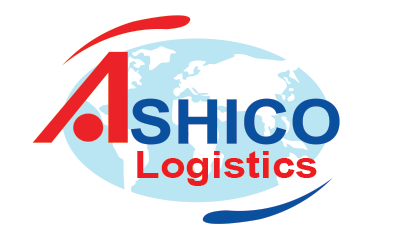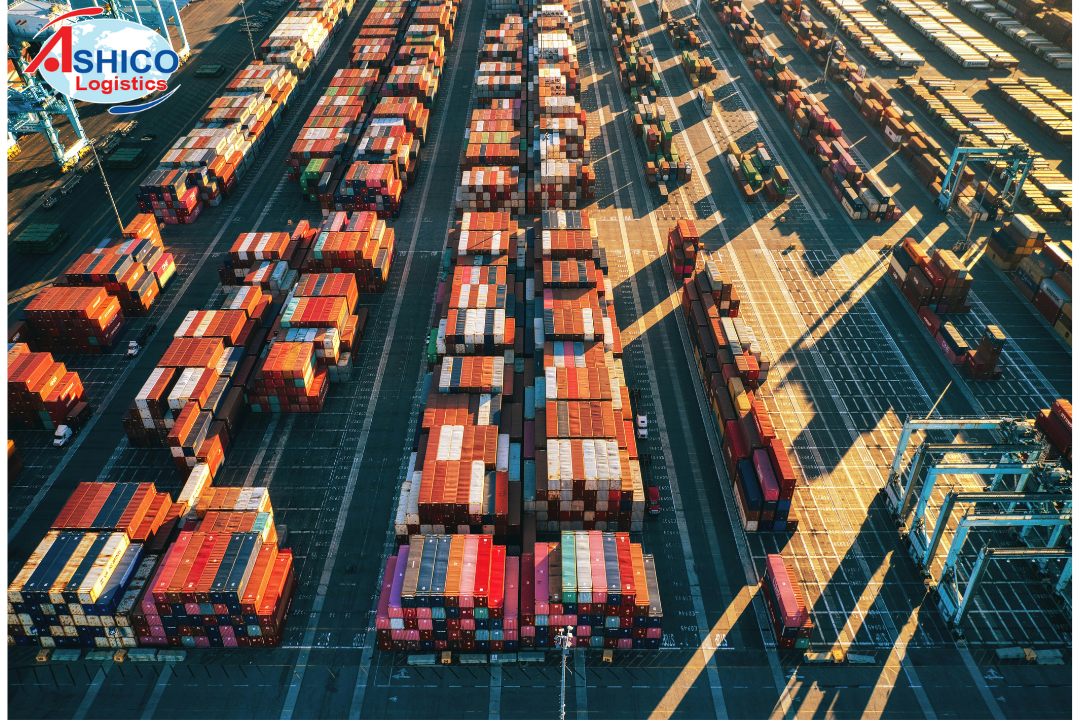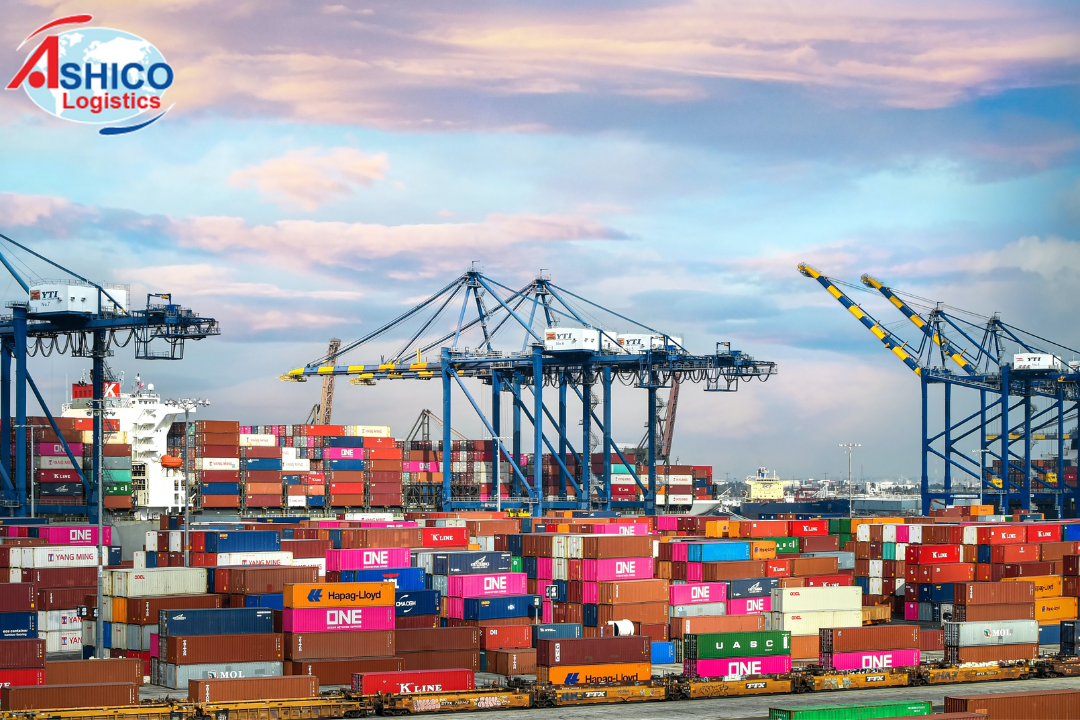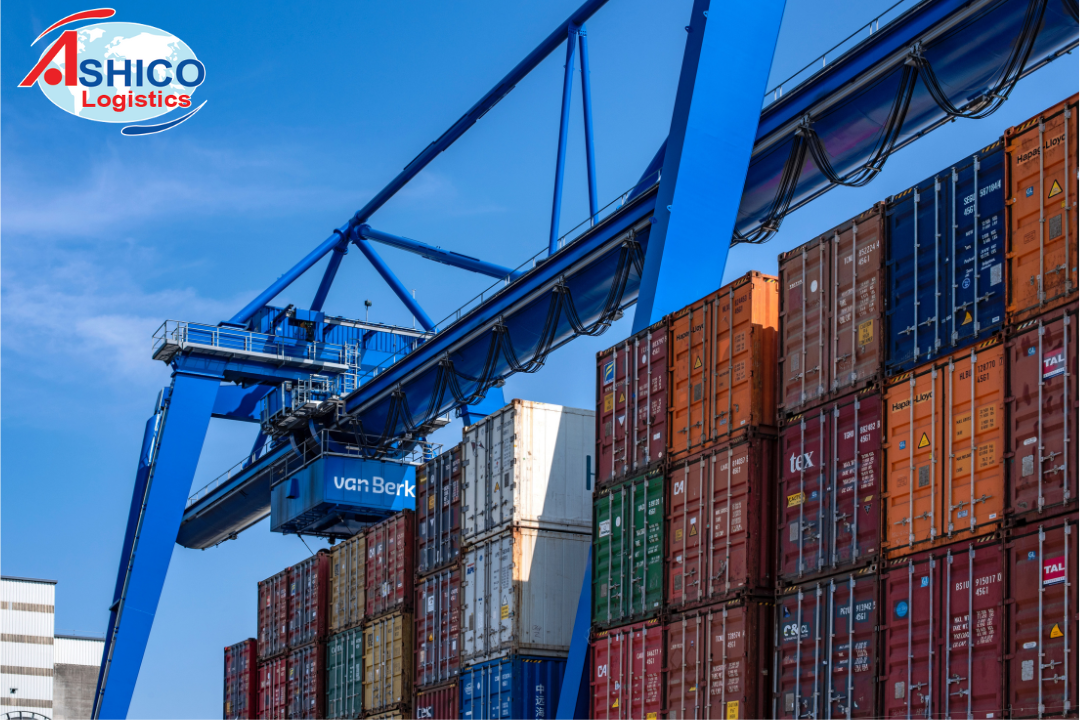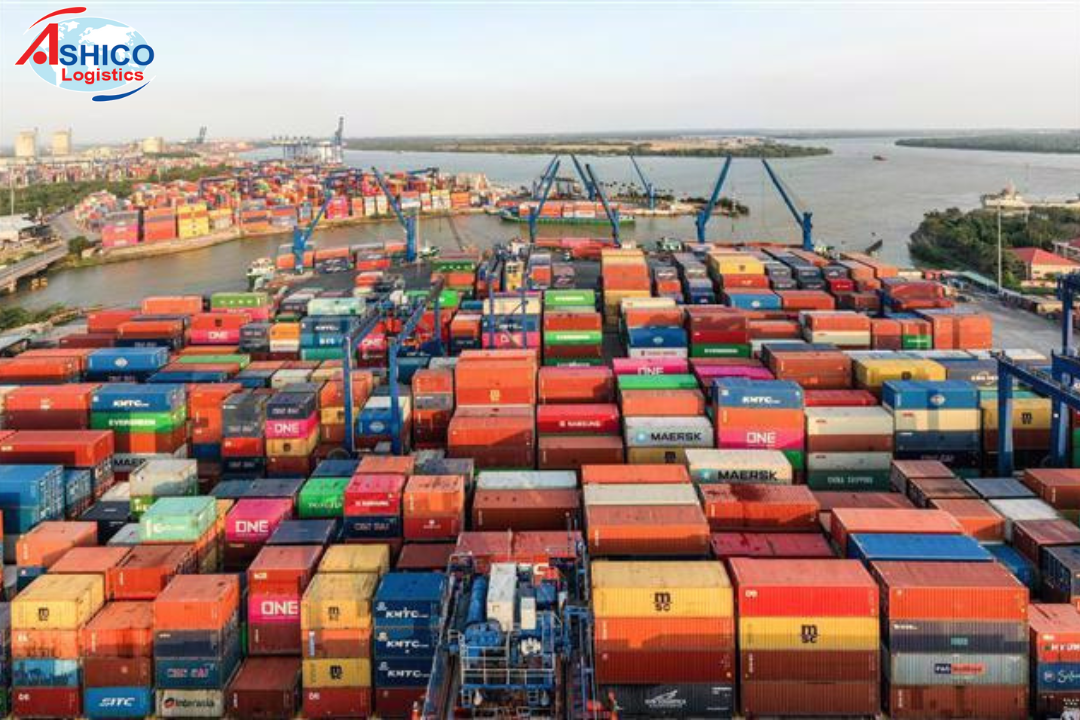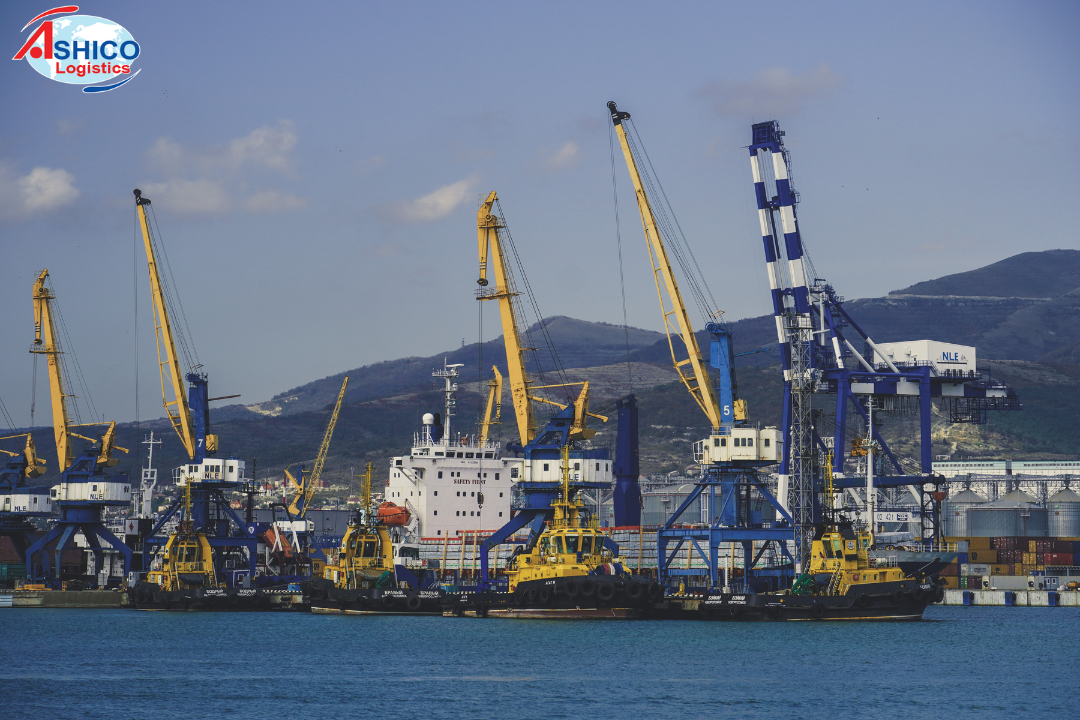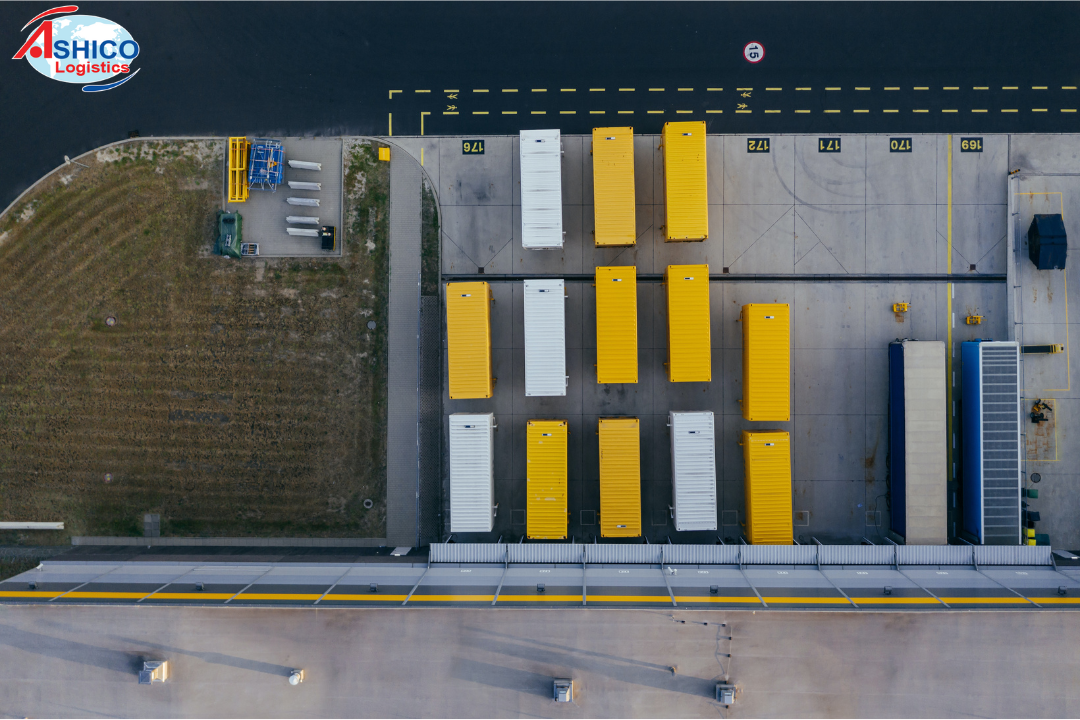Incoterms 2020
.png)
Group 1: Rules for any modes of transport
1. EXW – Ex Works
Ex Works (EXW) is the term used to describe the delivery of goods to an available designation at their place of business, normally in their factory, offices, or warehouse.
The Seller’s obligations
- The seller delivers the goods to the place specified by the buyer, on the agreed date or within the agreed period.
- The seller delivers the goods together with the commercial invoice in accordance with the contract of sale and any other evidence of conformity with the documents, which were mentioned in the contract (in paper or electronic form).
- At the buyer’s request provides the risk and cost of assistance in obtaining the authorization necessary for the export of goods.
- Notifies the buyer of the date the goods are left at the buyer’s disposal.
- Provides the buyer with all assistance in obtaining any documents necessary for completing export, import, or transit clearance formalities.
- The seller provides the buyer with any information necessary for obtaining insurance (at his expense and request).
The Buyer’s obligations
- The buyer, at his own risk and cost, obtains documentation authorizing him to export and carry out all export, import, or transit clearance formalities.
- Carries out all import, export, and transit clearance formalities.
- Organizes the transport of goods from the place of delivery.
- Takes the delivery of the goods and provides the seller with evidence of having taken delivery.
- From the moment the goods are delivered in accordance with the contract, he bears all the costs and risks of the goods.
- Unloads and loads the goods in the export and import port.
2. FCA – Free Carrier
FCA means the seller loads the goods on the buyer's transport at the seller’s premises, or the seller delivers them to another named place. Most often, the buyer hires a transport that picks up the goods at the seller’s warehouse.
The Seller’s obligations
- The seller must provide the goods, the commercial invoice, and other evidence of conformity as may be required and specified in the contract,
- Upon request and at the buyer’s expense, the seller enables and assists in obtaining a shipping document,
- Appoints a person responsible for loading the goods to the vehicle of the purchaser of the products,
- The seller is responsible for preparing the goods for loading (measurement and packing of the goods),
- The seller adjusts the goods for export and bears the risks and costs involved,
- At the request of the buyer, he may conclude a contract of carriage on normal terms and conditions at the cost and risk of the buyer.
The Buyer’s obligations
- The buyer completes the formalities related to the import of goods and their transport from the moment of delivery by the seller to the courier,
- He bears the risk of losing or damaging the products from the moment of delivery to the courier,
- It concludes transport contracts, although the seller may (as an additional service) arrange transport at the expense and risk of the buyer,
- He takes care of all necessary transit formalities and prepares the goods to import,
- The buyer orders transport,
- He takes delivery of the goods at the place agreed upon in the contract in advance.
3. CPT – Carriage Paid To
“Carriage Paid To” goes into a little more detail than FCA, specifying that the seller bears the costs for transporting the goods to the nominated place that the buyer requests. This rule can be used in any transport mode, and the risk transfers from the seller to the buyer as soon as the goods reach the nominated destination, and the carrier takes charge of these.
The Seller’s obligations
- Seller provides commercial invoice and other required documents in paper or electronic form.
- The seller is responsible for the delivery of goods to the carrier at the place of delivery on the agreed date or within the agreed period.
- The seller is responsible for damage or loss of goods until they are handed over to the carrier at the named point and within the specified time.
- The seller must contract or organize the transport of goods to the named place of destination. If such a place does not exist, the seller can choose the point that best suits this purpose.
- One of the seller's obligations is operating according to all transport-related security requirements for transport to the destination.
- The seller must carry out and pay for export clearance, as well as assist the buyer with import clearance.
- Seller counts and weighs goods and, if required, packs the goods at its own expense.
- The seller informs the buyer about the delivery of goods to the carrier and provides the buyer with documents authorizing the buyer to take over the goods.
- The seller is not obliged to make a contract of insurance but must provide information for this purpose at the buyer’s request.
The Buyer’s obligations
- The buyer takes up the delivery of the goods.
- He takes responsibility for damage or loss of goods from the time they have been handed over to the carrier.
- The buyer accepts documents provided by the seller.
- The buyer must carry out and pay for import clearance, as well as assist the seller with export clearance.
- He informs the seller about the place and date of delivery.
- The buyer is not obliged to make a contract of carriage.
- The buyer is not obliged to make a contract of insurance.
4. CIP – Carriage and Insurance Paid To
The Carriage and Insurance Paid To (CIP) Incoterms® 2020 rule is similar to CPT with one very important difference. This rule requires the seller to take out maximum insurance cover under Institute Cargo Clauses (A) or (Air) or similar, for the buyer’s risk. The seller must give the buyer any insurance document the buyer will need in case it must claim under that insurance.
The Seller’s obligations
- Carrying out all the duties under the terms of delivery specified in the contract.
- Handing over the goods to the carrier on the agreed date stated in the contract.
- Contracting or organizing the carriage of the goods from the agreed point of delivery to the named place of destination.
- Operating according to all transport-related security requirements for transport to the destination.
- Packaging and marking the goods.
- Assisting the buyer in obtaining any documents necessary for transit and import clearance formalities.
The Buyer’s obligations
- Taking delivery of the goods.
- Carrying out and paying for import clearance.
- Obtaining documents necessary for import and transit.
- Assisting the seller, at his request, risk, and cost, in obtaining any documents necessary for the export formalities.
- Informing the seller about the place and date of delivery.
5. DPU – Delivered at Place Unloaded
Under DPU the seller is generally responsible for export packing, loading charges, delivery, export duties and taxes, origin terminal charges, loading on carriage, carriage charges, and destination terminal charges. The buyer then is generally responsible for the delivery to the destination and import duties and taxes.
The Seller’s obligations
- Carrying out all the duties under the terms of delivery specified in the contract. This means delivery of the goods along with a commercial invoice in conformity with the contract of sale and other related documents.
- The seller is responsible for unloading goods from arriving means of transport, and then delivering by placing them at the disposal of the buyer at the point agreed in the contract.
- Contracting the carriage of the goods.
- Providing the buyer, at his own expense, with all documents necessary to enable the buyer to take over the goods.
- Assisting the buyer at the buyer's request, risk, and cost in obtaining any documents necessary for transit and import clearance formalities.
- Packaging and marking the goods.
- Informing the buyer about matters related to receiving the goods.
- Unloading goods at the place of delivery.
The Buyer’s obligations
- Assisting the seller, at his request, risk and cost, in obtaining any documents necessary for the export and transit clearance formalities.
- Carrying out and paying for import clearance.
- Informing the seller in advance of all safety requirements related to transport, ship name, loading point and possible delivery date within the period agreed in the contract.
6. DAP – Delivered At Place
“Delivered at Place” can be used for any mode of transport. In an extension of DAT, the seller delivers the goods at a named destination, specified by the buyer, although under the ICC Rules, the unloading of the goods is the responsibility of the buyer. The buyer is also required to sort out duties and taxes, as well as clear the goods through customs.
The Seller’s obligations
- Seller provides commercial invoice and other required documents in paper or electronic form.
- He delivers goods ready for unloading at a named place and within the specified period.
- He takes responsibility for damage or loss of goods until they are delivered at the agreed point and time.
- The seller’s obligation is contracting or organizing the transport of goods at the indicated destination at his own cost. If such a place is not specified, the seller can choose the point that best suits this purpose.
- Seller operates according to all transport-related security requirements for transport to the destination.
- The seller must carry out and pay for all export and transit clearance, as well as assist the buyer with import clearance.
- He must count and weigh goods and, if required, pack the goods.
- He provides the buyer with documents authorizing the buyer to take over the goods.
- The seller is not obliged to make a contract of insurance.
The Buyer’s obligations
- The buyer pays the price of the goods as provided in the contract of sale.
- He takes up the delivery of the goods.
- The buyer must accept documents provided by the seller for being enabled to take up the goods.
- He takes responsibility for damage or loss of goods from the time they have been delivered.
- The buyer must carry out and pay for import clearance, as well as assist the seller with export clearance.
- The buyer informs the seller about the designated port/place of delivery, types of means of transport, and date of delivery.
- The buyer is not obliged to make a contract of insurance but must provide information for this purpose at the seller’s request.
7. DDP – Delivered Duty Paid
According to the Delivered Duty Paid (DDP) Incoterm rule, the seller is responsible for all costs associated with the delivery of goods to the named destination. It is the seller’s responsibility to pay both export and import duties, taxes, and fees.
The Seller’s obligations
- The seller is obliged to deliver the goods and all necessary documents to a destination agreed upon by both parties and at a specified date (the documents may be in paper or electronic form),
- He must properly pack and label the goods so that they can be transported (unless the parties have agreed otherwise in advance),
- The seller must provide the buyer with all the information/documents required to enable the buyer to take delivery of the goods.
The Buyer’s obligations
- The buyer is obliged to collect the goods,
- The buyer is not obliged to conclude the insurance contract, but must provide the seller (at his request) the information he needs to obtain insurance,
- The buyer is obliged to assist the seller (at his request) in obtaining all documentation related to import, export, and transit,
- If both parties agree that the buyer is obliged to determine the time and place of delivery, he must also notify the seller in advance.
Group 2: Rules for Sea and Inland Waterway Transport
8. FAS – Free Alongside Ship
The FAS (Free Alongside Ship) rule goes back to the days of sailing ships and requires the seller to place the goods alongside the vessel nominated by the buyer.
The Seller’s obligations
- Carrying out all the duties under the terms of delivery specified in the contract. This means delivery of the goods along with a commercial invoice in conformity with the contract of sale and other related documents.
- Delivering goods by placing them alongside the ship within the prior specified period and at the named port indicated by the buyer.
- Informing the buyer in advance of the delivery of the goods.
- Providing at his own expense a document confirming delivery of the goods to the buyer. If such proof is a transport document, the seller must assist the buyer, at his request, risk, and cost, in obtaining it.
- At the buyer's request, risk, and cost in obtaining any documents necessary for transit and import clearance formalities.
- Packaging and marking the goods.
- Operating according to all transport-related security requirements until delivery of the goods to the buyer.
The Buyer’s obligations
- Concluding the contract of carriage from the named port of shipment, except where the contract of carriage is made by the seller (at the buyer’s expense and risk).
- Assisting the seller, at his request, risk, and cost, in obtaining any documents necessary for the export clearance formalities.
- The buyer must notify the seller in advance of any safety requirements related to transport, ship name, loading point and the delivery date within the period agreed in the contract.
9. FOB – Free On Board
FOB (Free on Board) is the most used trade term but in practice, it is used without reference to any version of the Incoterms® rules. In such cases, it is then up to the seller and buyer to agree in their contract on what they mean when they use these three letters.
The Seller’s obligations
- The seller must deliver the goods to the vessel at the place designated by the buyer. He also must bear the costs involved.
- Obtains permission to export products.
- The seller shall be fully liable for any damage to the goods before loading to the vessel.
- Informs the buyer of all undesirable events that occur during the delivery of products to the ship.
- Informs the buyer that the goods have been delivered to the ship.
- The seller is responsible for the export clearance and related costs.
The Buyer’s obligations
- The buyer is responsible for any damage to the goods and theft after the goods have been loaded into the ship.
- The buyer bears the costs related to the conclusion of the transport contract and import issues.
- It shall inform the seller about the designated port, the name of the vessel, and the delivery date.
- Organizes import clearance and bears the associated costs.
10. CFR – Cost, and Freight
CFR (Cost and Freight) is one of the most commonly used trade terms after Free On Board (FOB) but in practice, it is used without reference to any version of the Incoterms® rules. In such cases, it is then up to the seller and buyer to agree in their contract on what they mean when they use these three letters.
The Seller’s obligations
- Loading at the starting point of transport.
- Making a contract for carriage.
- Delivering the goods on board the vessel along with a commercial invoice in the place indicated by the buyer, as well as bearing the costs related to it.
- Controlling the quality of goods, weighing, measuring, and counting the goods – necessary before loading the goods onto the ship.
- Safe packaging of goods necessary for transport to avoid unnecessary risk.
- Operating according to all transport-related security requirements for transport to the destination.
- Providing a transport document issued to the destination port of the goods and its copy in electronic form.
- Providing information to the buyer at his expense and risk needed to obtain insurance.
The Buyer’s obligations
- Taking up the delivery at the time and place specified in the contract.
- Transporting the goods from the named port of destination to the main office and unloading at the port.
- Informing the seller about the port of destination and date of delivery.
- The buyer obtains the import license necessary for the transaction and bears the costs of carrying out customs clearance.
- Carrying out pre-shipment controls of the goods (if it is required in the country from which the goods are shipped).
11. CIF – Cost, Insurance & Freight
The CIF rule is identical to CFR except in one aspect. Even though the risk transfers to the seller upon loading the goods on board the vessel, in CIF the seller is obliged to take out the minimum level of insurance cover for the buyer’s risk.
The Seller’s obligations
- The seller is obliged to conclude a contract of carriage to a designated port of shipment at his own expense.
- Conclude and pay the freight contract costs.
- The seller is responsible for loading the goods on the vessel.
- The seller is obliged to conclude an insurance agreement (with minimum coverage) and deliver it to the buyer.
- Is responsible for the export clearance and related costs.
The Buyer’s obligations
- The buyer is responsible for any damage or theft of the goods after the goods have been loaded onto the vessel.
- Is obliged to bear all the costs required to obtain the certificate of origin, consular documents, and import rates of duty.
- The buyer must inform the seller of the designated port, the name of the vessel, and the delivery date.
- The buyer organizes the import clearance and bears all related costs.
- The buyer must obtain all documents necessary for import or transit.
